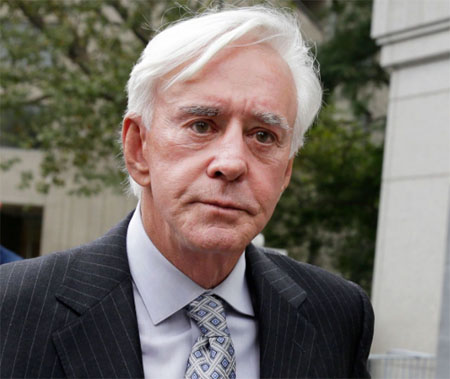by WorldTribune Staff, May 8, 2019
One of America’s most famous sports gamblers, who was convicted in 2017 in an insider trading case, has appealed to the Supreme Court to hear his case, citing damaging illegal FBI leaks to the press that came from the New York bureau office.
The FBI office in New York is also heavily involved in investigations of President Donald Trump.

Investor and sports gambler William T. “Billy” Walters’ May 3 petition to the Supreme Court “narrates the kind of FBI leaks that Justice Department Inspector General Michael Horowitz condemned in his 2018 report on how agents handled the Hillary Clinton email investigation,” Washington Times reporter Rowan Scarborough noted on May 7.
Walters, best known for a gambling winning streak which spanned more than three decades, was convicted in 2017, and the U.S. Court of Appeals for the 2nd Circuit refused to dismiss the case. He was sentenced to five years in prison and is incarcerated in Florida.
New York attorney Alexandra A.E. Shapiro said in the Walters petition to the high court that “The rampant culture of leaking at the FBI is law enforcement’s worst-kept secret. These violations of grand jury secrecy likely constitute multiple criminal offenses, including obstruction of justice.”
The petition to the Supreme Court paints an unflattering picture of how the New York FBI field office leaked to The Wall Street Journal and The New York Times to pressure Walters.
Shapiro said prosecutors in Walters’ case withheld thousands of relevant emails and text messages and the Justice Department swept the scandal under the rug.
“After the U.S. Attorney for the Southern District of New York and the head of the FBI’s New York Office discovered the leaks, they deliberately turned a blind eye in order to take advantage of the leakers’ misconduct and use it to resuscitate a dormant investigation,” Shapiro’s filing says.
The U.S. attorney’s office for the Southern District of New York, then led by Trump critic Preet Bharara, was aware of at least one agent-press get-together on May 27, 2014, the petition says.
“This case confirms why [the Supreme Court] must intervene to stop the problem,” Shapiro argued. “It is hard to imagine a more pervasive pattern of grand jury leaks than those perpetrated by the FBI’s New York office over the past decade, including in this case.”
In pretrial motions, Walters’ attorneys pressed the prosecution to come clean on leaking. The district court judge then ordered a hearing, prompting the U.S. attorney’s office to file a letter admitting to some leaks but not providing the expansive disclosure sought by the defense, Scarborough reported.
The Walters petition also matches complaints from some figures caught up in the 22-month Trump-Russia investigation by special counsel Robert Mueller, Scarborough’s report said.
Should the Supreme Court take the case, it “would inject the nation’s highest court into the issue of government leaks that were used to target and tar investigation targets, some in the Russia election interference probe,” Scarborough noted.
Kevin Downing, who represented former Trump campaign manager Paul Manafort, said the government was leaking inaccurate allegations against his client.
News stories said Manafort had contact with Kremlin officials during the election and was heard asking them for help. Downing said the articles were false. There was no such evidence and the leaking was done to prejudice the public against Manafort, Downing said.
Manafort was convicted of bank and tax fraud but wasn’t charged in an election conspiracy, which Mueller never found.
Downing’s court demands forced the government to reveal that a prosecutor and FBI agents had met with Associated Press reporters about Manafort.
Meanwhile, two Republican senators on May 6 sent a letter to Michael K. Atkinson, the inspector general for the intelligence community, asking whether he is investigating leaks. Sens. Ron Johnson of Wisconsin and Chuck Grassley of Iowa referred to text messages between former FBI employees, agent Peter Strzok and counsel Lisa Page.
In one text, during President Trump’s transition in December 2016, Strzok told Page: “Think our sisters have begun leaking like mad. Scorned and worried and political, they’re kicking in to overdrive.”
The following April, Strzok emailed colleagues about an apparently inaccurate story in Britain’s The Guardian newspaper. The story said British spies were the first to note Trump team links to Russia.
“I’m beginning to think the agency got info a lot earlier than we thought and hasn’t shared it completely with us. Might explain all these weird/seemingly incorrect leads all these media folks have. Would also highlight agency as source of some of the leaks,” Strzok said.
The words “sisters” and “agency” in the messages appear to be references to the intelligence community.
“These texts and emails demonstrate the need to investigate leaks from agencies or entities other than FBI,” the two senators said. “Accordingly, has the Intelligence Community Office of the Inspector General initiated an investigation into these apparent leaks? If not, please explain why not.”
Your Intel Brief: Geostrategy-Direct __________ Fix The Media Now
